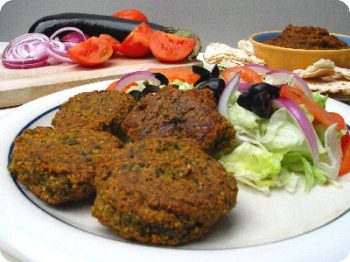Archive for March, 2009
The Present (Imperfect) Tense in Arabic Posted by aziza on Mar 9, 2009
In Arabic, the time of the verb is marked by prefixes and suffixes that differ from present (imperfect) and past (perfect). The present or imperfect is used with actions that are still in progress or with repeated actions, e.g. things that you do everyday or usually, etc. Examples of the imperfect tense: أدرس اللغة…
Family Vocabulary in Arabic Posted by aziza on Mar 8, 2009
Terms used to express family relations in Arabic are more explicit than in English. This may reflect the importance of family and relations in the Arabic society. An example of the more explicit family relations terms in Arabic is that the term ‘uncle’ in English has 2 Arabic terms distinguishing ‘maternal uncle’ (خال) and ‘paternal…
Relative and demonstrative pronouns in Arabic Posted by aziza on Mar 5, 2009
Relative pronouns, like ‘who’, ‘which’, ‘whose’, ‘what’, etc. are used at the beginning of relative clauses to describe a definite noun. In Arabic, relative pronouns come after definite nouns to introduce sentences that describe these nouns or provide additional information about them. Relative clauses that follow relative pronouns can be nominal or verbal sentences, e.g…
Pronouns in Arabic Posted by aziza on Mar 3, 2009
Subject pronouns (ضمائر الفاعل) in Arabic are used to substitute nouns and to refer to them, e.g. (الطالب متغيب، هو مريض) “the student is absent; he is ill”. Personal pronouns in Arabic have a lot in common with English pronouns, but have some differences as well. For example, Arabic does not have a pronoun for…
Buying Food in Arabic Posted by aziza on Mar 3, 2009
If you want to buy food in an Arab country using the Arabic language, you need to use one of the colloquial dialects because it would be very odd to use Modern Standard Arabic in this context, since it is too formal and sellers may not even be able to understand. In this posting, I…
Felafel Posted by aziza on Mar 1, 2009
Felafel (الفلافل) is a traditional dish or even snack in Egypt and other parts of the Middle East. It has been largely internationalized in the last few decades. The traditional Egyptian felafel is made up of soaked broad (fava) beans mixed with various spices, onion, and garlic, in addition to parsley or coriander. It is…



